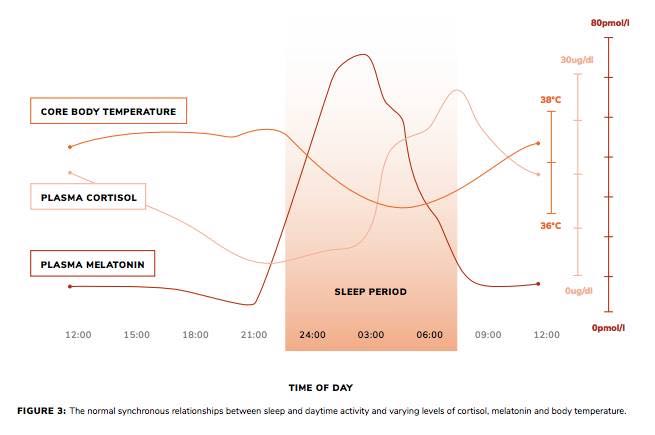The debate for building muscles has been raging for centuries. Gyms are normally packed from 5-7 am and 5-7 pm, and they tend to thin out thoughout the day. Thus, you’ll likely find that most trainees do their workout at one of two times: mornings or evenings.
Usually, most lifters tell you that their preference is simply dictated by choice or lifestyle. While true, there’s quite a bit of research to support exercise at either time of day. So, let’s dig into both the physical and psychological benefits of both so that you can decide for yourself.
Does the Early Bird Get the Worm?
As I touched on in a previous post, Training to Be Faster, Stronger, training in and of itself is an incredibly fundamental activity. Most assume the benefits are purely physical, but psychology plays a huge role.
With the morning exercise crew, many find it sets the tone for their day. They have something to look forward to, and it starts their day on a productive note. It’s much easier to get to the gym when you aren’t fighting fatigue from an 8-hour workday.
Most enjoy the fact that morning workouts keep their evenings free to socialize or rest after work. It’s much easier to talk yourself out of a workout after a stress-filled workday. Also, when a hard workout is behind you, it motivates you to eat well throughout the day so that the workout won’t “go to waste.”
However, I think one of the most important psychological benefits of morning workouts is that they teach self-discipline. To me, this is one of the strongest qualities a human being can possess. Sadly, many trainees lack it. Morning workouts force you to be accountable to your own decisions. Alarms aren’t set accidentally … we get up early as a direct result of choice.
Sleep Late, Stay Late
If you often go to a gym after 5 pm on a weeknight, you know that there’s a standard crew up who shows up early and stays late. The gym is their safe-haven after work (aka their second home away from home).
For these people, they often find that one of the largest benefits to evening workouts is the fact that it functions as a stress reliever from the pressures of the day. Leave work, hit it hard, and then head for home. This can function as a method of “winding down,” even though it tends to “wind us up” physiologically.
Many find that evening training sessions work better for their gym partner’s schedule, and as a result, they have a dedicated training partner holding them accountable. Not only that, an evening workout gives you something to look forward to throughout the workday.
Most gyms are relaxed in the evenings, with the morning crew tending to be the regimented, type-A go-getters. As such, you’ll find it’s much easier to ask for advice, get a spot, or strike up a conversation with other lifters in the evenings.
Most importantly, evening workouts allow you to sleep in and take your mornings at a slower pace. For some, nothing is worse than rushing out of bed, running around the house, throwing yourself together, and trying to scramble out the door. Evening workouts may even help you stay on a consistent training schedule. This is especially true for those who struggle to get up early and maintain motivation with an early schedule.
I Don’t Care About My Brain, I Just Want Bigger Biceps…
Fair enough.
I want to preface this entire conversation by summing up this debate in one sentence:
The “best” time to workout is the one that allows you to be consistent over multiple weeks, months, and years.
In the long run, nothing beats adherence, absolutely nothing.
That being said … there are some interesting and unique benefits for both morning and evenings alike. Here’s a quick breakdown:
Mornings
These tend to improve mental acuity – most find an enhanced sense of focus throughout the course of the day after their workout.
It’s easier to work out through giant sets, supersets, and circuits because the gym won’t be as crowded. And, the seasoned veterans are usually willing to let you work in or around them.
From a hormonal standpoint, early morning exercise helps set your circadian rhythms, boost immune function – via the cortisol awakening response (CAR) – and ensure quality sleep.
NOTE: If you’re curious about the mechanism behind CAR, read this piece because I went into much more detail, and it will give you a thorough understanding.
Evenings
There’s a lot of data suggesting that the body may be in a better place physically later in the afternoon to complete higher volumes of work, whether strength or aerobic-based. Interestingly, most world records tend to be set in the late afternoon and early evening.
Hormonally speaking, the body may be in a more favorable state because cortisol (stress hormone) tends to be lower. And, circulating androgens (growth hormones) like testosterone peak in the afternoon following their natural daily cycle.
Longer training sessions are hypothetically possible given trainees don’t have to rush off to a job. This allows for longer warm-ups, longer rest periods, and even time to socialize with training partners.
Many might assume that evening training is superior to morning training because of the hormonal advantage AND the additional time to complete more volume.
There is a good deal of literature linking higher training volumes with building muscle. However, the data simply does NOT support the idea that hormonal cascades before, during, or after exercise promote a substantial increase in muscle growth compared to training at other times of the day.1

DOs/DON’Ts of Morning vs. Evening Workout Sessions
There are a few things to keep in mind when it comes to your personal situation:
Total training volume needs to be reduced for individuals with physically demanding jobs
If you work in construction or another physically demanding job, it’s probably not a great idea to run yourself into the ground, morning or evening. If you choose to work out on top of your day job, you probably need an excessively high number of calories. And, sleep needs to become a priority.
Ensure that you don’t overemphasize the eccentric (lowering) component of each exercise. This is where you incur the most damage to the muscle as it’s lengthening under immense tension, and as a result, microtrauma can occur. Keep the eccentric short and your volume low(er).
Morning workouts require longer warmups
Note my choice of words: “REQUIRE.” In other words, this isn’t optional if you value long-term joint health.
As you sleep, the intervertebral discs that support your spine absorb fluid and become slightly larger. This is also why people tend to have more back pain first thing in the morning. Thus, your spine is slightly more rigid early in the day and needs more time to warm up.
As you begin to move, the spine pushes this fluid out in the joint space and enhances lubrication. This allows for easier movement. Therefore, it’s important to prioritize this during your morning workouts, even if it means doing slightly less volume during the training session.
When training in the evening, absolutely do NOT use pre-workouts or caffeine
It takes roughly 5-6 hours for 50% of consumed caffeine to be metabolized and excreted by your body. Thus, if you take in 200mg of caffeine at 5 pm for your training session, you’ll still have 100mg floating around in your system at 10-11 pm.
The energy from coffee or pre-workouts may be enticing after a long day. But the resulting poor night’s sleep and terrible workday the next day will crush even the most dedicated trainee.
1 pm is the hard cutoff for all caffeine if you care about your sleep quality and quantity. Nothing beats the way a good night of sleep makes you feel. Not only that, sleep is literally the only time your body can devote its resources to recovery. While you may be resting at other points during the day, you still use resources for functions like movement, and stress will be higher. With sleep, these factors are removed. So, you can dedicate all your time and energy to repair and growth, building muscle.
The Impact of a Workout on Sleep
Research shows that when you exercise, you get tired, and it helps you sleep. This is rather obvious. But a potential drawback of late evening training is the impact on your sleep.
If you choose to lift late in the evening (~after 7-8 pm), this could disrupt your hormonal and metabolic environment. Exercising in the evening may increase cortisol levels (aka wakes you up) while lowering melatonin levels (aka makes you less sleepy). And this may negatively impact your sleep by increasing wakefulness.
TAKEAWAY: Whether you’re training in the morning or evening, research has shown that it will likely improve some components of your sleep. However, in light of newer data, it would likely be wise to finish all training sessions at least 3 hours before bedtime. If you still find yourself having sleep issues, bump that back to 4-5 hours. You may want to consider morning training sessions to see if it helps your sleep.
At the end of the day, I’m not sure we can draw a definite conclusion on morning versus evening workouts. Sleep, coupled with nutrition and programming, are the biggest factors in the success of your training. We often assume the answer to our problems is “more.” But maybe it’s time to rephrase that – “more training is only helpful if you add more recovery.”
1West et al., 2009; West et al., 2010; and Schoenfeld, 2013.








